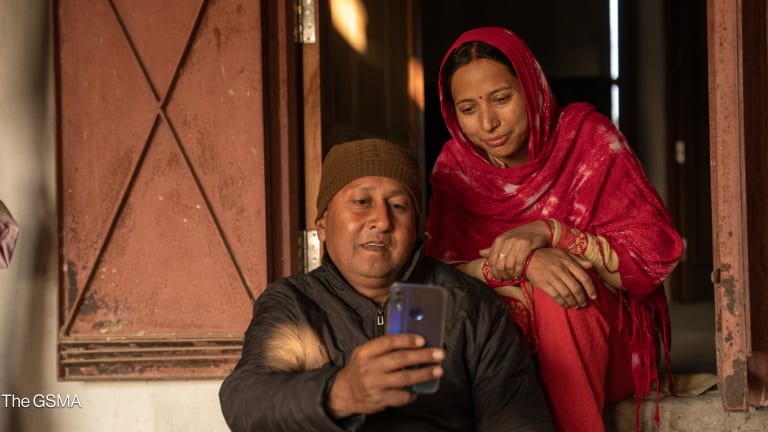Before leaving Europe in October, Betty and I "unlocked" our phones. We debated whether or not to buy cheaper, basic phones that we would not mind losing, or getting damaged or stolen. The expensive pieces of plastic given to us by our mobile phone providers seemed unnecessary.
We presumed the tricks that modern mobile phones are capable of would do nothing more than attract the unwarranted attention of thieves. We could not have been more wrong.
Thankfully, in the rush of leaving, the inverted logic of buying a replacement mobile phone that can do less than the one we already own got pushed to the bottom of the list. My mobile phone is now, without a doubt, my most treasured possession.
After three months in Zambia, with its expensive and unreliable Internet service driving me crazy, a visitor from Lusaka mentioned that it was possible to access the Internet through my mobile phone.
The very prospect of having the Internet accessible 24 hours a day sent my pulse racing. But more detailed investigation seemed fruitless. My phone is Internet-capable, but simply clicking the "Web" button came up with error messages. My only conclusion was that it was I who was incapable.
The many frustrating hours spent trying to connect to the Internet were made worse by the torment of being so close to, and yet so far from, easy communication with the outside world. As Christmas approached, feeling homesick and isolated, I reached my lowest ebb.
I contacted Zain, Zambia's main independent mobile phone operator, and explained my plight to one of its customer service agents.
"What is your phone model?" asked the voice from the other end of the line.
Slightly stunned, I blurted I had no idea, before remembering that it was written at the bottom of the handset. I calmly read the model number, frustrated as to why this could possibly be of any significance.
"And the phone is registered on this number?" the voice asked.
Without waiting to hear my answer, the voice confidently announced: "Your phone is now connected to the Internet. You will receive a message, which you must save. Once you have done that, you will be able to access the Internet through your phone. Is there any other way I can help you?"
When I first got my phone years ago, it came with an installation CD, which I excitedly uploaded onto my laptop and then forgot about it. I had never used my phone for the Internet. I suppose that perhaps somewhere in my subconscious I believed that doing so would be very expensive. But the reality was that in the U.K., Internet was free and easily accessible at home and at work, so I did not need it on my phone too.
Now using my phone to connect my computer to the Internet was a revolution. Certain pages, such as my e-mail, are easy to read on my mobile phone. But writing e-mails is limited to text message lengths, and many pages do not load properly. When connected to my computer, I have full Internet access as good as, if not better than, that offered by an expensive Internet café. However, had I not loaded the program on my computer, this would not have been possible.
My phone is now far more than just a phone: It is an MP3 player, camera, Internet browser, diary and torch. In the West, we have separate devices specifically performing these different functions. It is here that all the extras that have been added and ignored on mobile phones come into their own.
In Zambia – thanks to a service called "Xapit" that I signed up for at my local bank – I now also use my phone to pay household utility bills, purchase talk time, transfer money to other accounts and check my bank statements. I do all of these just by sending a few text messages. This is a minor convenince to me as I walk past the bank every day. To the villagers who live hundreds of kilometers away from any financial institution, such gadgets are a lifesaver.
While I am benefitting from being able to take my e-mail with me anywhere in the country, mobile phones have the potential to reduce poverty and even boost a developing economy's rate of growth. There are several programs running throughout Africa that make use of mobile phone technology, be it to ensure farmers get fair prices and find buyers for their produce, capture and monitor data, or provide medical support in hard-to-reach places.
As if to underline this, this week sees the GSMA Mobile Money Summit 2009 open in Barcelona. The event looks to showcase potential new markets and business opportunities.
In 1995 there were 1,500 mobile phones in Zambia. Ten years later there were just under one million. If you are coming to Africa, make sure that you don't forget your mobile phone.
For more information about how mobile phones are changing development, see the World Bank's infoDev site.








